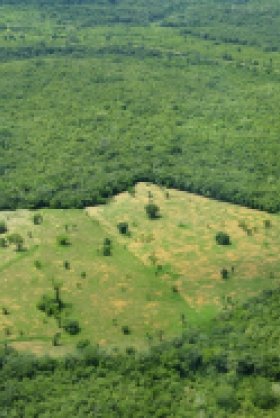Relatório da Reunião | Agricultura Sustentável: Sessão 3 do Diálogo Brasil-EUA sobre Sustentabilidade e Mudanças Climáticas



Em outubro de 2021, o Wilson Center, em parceria com a Uma Concertação Pela Amazônia, promoveu uma discussão bilateral sobre como trazer recursos em escala para promover sistemas alimentares sustentáveis inclusivos e eficazes na região amazônica. Os resultados alcançados até o momento são insuficientes para possibilitar a transição dos modelos atuais para sistemas sustentáveis que promovam a melhoria da renda e da qualidade de vida dos produtores familiares e das populações tradicionais da Amazônia.
Ao longo da sessão, três recomendações de políticas críticas surgiram para apoiar a cooperação bilateral entre o Brasil e os EUA no fortalecimento de sistemas alimentares e práticas sustentáveis na Amazônia.

The Brazil Institute—the only country-specific policy institution focused on Brazil in Washington—aims to deepen understanding of Brazil’s complex landscape and strengthen relations between Brazilian and US institutions across all sectors. Read more
